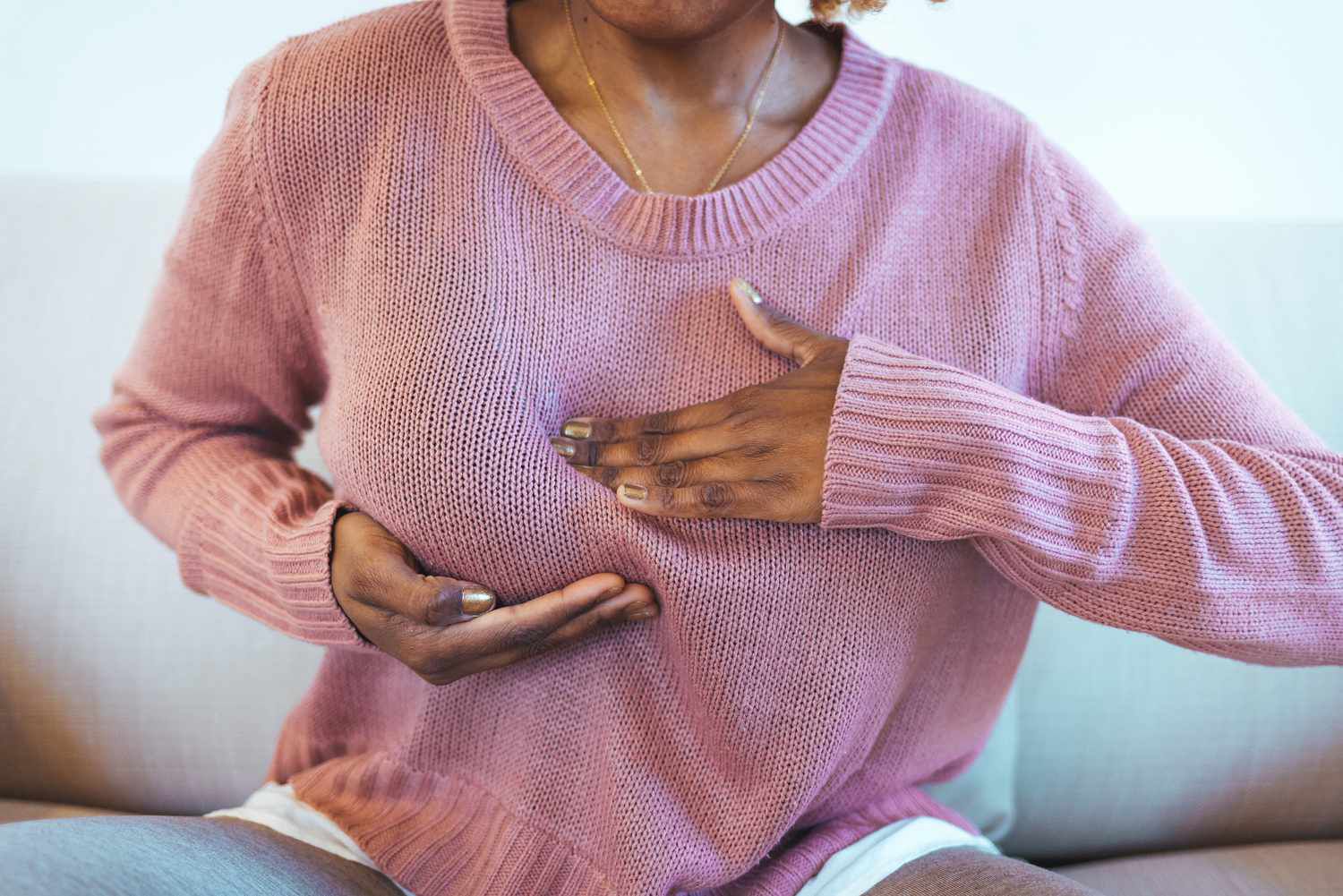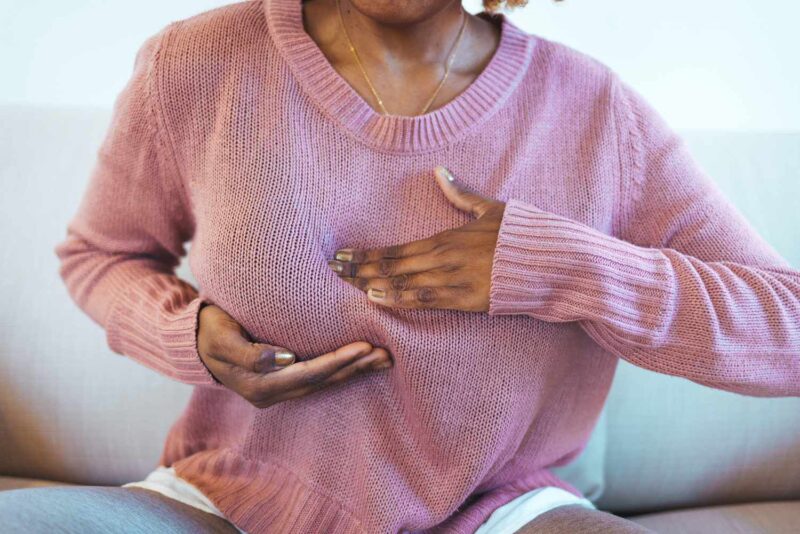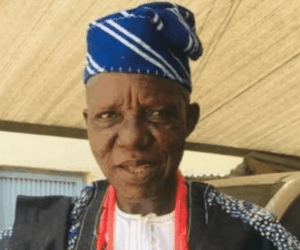
A cancer report by the National Library of Medicine recorded 32,278 new breast cancer cases, representing 25.3 % of all cancer cases in Nigeria.
Even more alarmingly, most of them discover it too late when survival chances drop and treatment becomes painfully expensive. This makes breast cancer the leading cause of cancer deaths among women in Nigeria.
Early detection can save lives, and one of the easiest ways to start is with a simple breast health routine. This Breast Health Checklist for Nigerian women (and men) highlights easy, practical steps everyone can use to protect themselves and their loved ones.
1. Do a Monthly Breast Self-Examination (BSE)
This is the easiest, most accessible way to monitor your breast health and check for lumps at home. It’s best to do this a few days after your period ends, when your breasts are least swollen. Here’s how:
-
Stand in front of a mirror with your shoulders straight. Look for changes in shape, swelling, or dimpling.
-
Raise your arms and look for the same changes.
-
Gently squeeze each nipple to check for discharge.
-
Use the pads of your fingers to feel for lumps or thickening in circular motions across your entire breast, moving from the collarbone to the underarm.
If you notice anything unusual, don’t panic. See a doctor immediately.
READ ALSO: Did you know Breast Cancer death rate among women is expected to rise by 68% by 2050.
2. Look Out for Early Warning Signs
Breast cancer doesn’t always start with pain. Watch for :
-
A new lump in the breast or underarm.
-
Nipple pulling inward or unusual discharge (including blood).
-
Swelling or thickening of part of the breast.
-
Redness, flakiness, or dimpling of breast skin.
-
Breast pain or discomfort that feels different from your usual cycle.
These are the early signs of breast cancer that Nigerian women and men often overlook. Don’t ignore them.
3. Get Regular Clinical Breast Exams
While self-exams are vital, nothing replaces professional screening, no matter how healthy you feel. If you’re in your:
-
20s & 30s: Get a clinical breast exam at least once every 3 years.
-
40 and above: Get annual exams and consider mammograms.
You can access screenings at government hospitals, such as LUTH (Lagos University Teaching Hospital) or UCH (University College Hospital, Ibadan), or participate in free breast cancer awareness campaigns in Nigeria, which are often organised by NGOs and health bodies.
READ ALSO: 10 common breast cancer signs that you should never ignore
4. Consider Mammograms and Advanced Screening for Early Detection
A mammogram is an X-ray of the breast that helps detect cancer before it can be felt. It is highly recommended at least once every 1–2 years for women 40 years and older or younger women with a strong family history.
Although cost is a challenge (averaging ₦15,000–₦20,000 in Nigerian hospitals like Coptic Hospital), many NGOs and government programmes, such as BRECAN and Project Pink Blue, offer subsidised or free breast cancer screening in Nigeria during October.
READ ALSO: 11 Signs of breast cancer in women that aren’t lumps.
5. Adopt a Breast-Healthy Lifestyle
Lifestyle changes may not guarantee prevention, but they lower your risk. Here’s what you can do:
-
Eat right: Include fruits, vegetables, and traditional Nigerian foods like beans, fish, and leafy greens.
-
Stay active: 30 minutes of brisk walking, dancing, or aerobics at least 5 times a week.
-
Limit alcohol and avoid smoking.
-
Maintain a healthy weight.
READ ALSO: 6 popular foods to remove from your diet for a healthy life, according to a dietician.
Know Your Risk: Breast Cancer in Nigeria
Breast cancer does not discriminate. It affects young women, older women, rich, poor, rural, and urban Nigerians alike. However, certain factors increase risk:
-
Family history (if your mother, sister, or aunt had breast cancer).
-
Age (risk rises as you grow older).
-
Lifestyle (unhealthy diet, lack of exercise, smoking, or excessive alcohol).
-
Late diagnosis.
Understanding these risks is the first step toward breaking the cycle of late detection and needless deaths.
Breast cancer is not a death sentence. With early detection and this checklist, Nigerian women can survive and thrive. So, do your self-exam today. Share this article with your mother, sister, friend, or colleague. Encourage them to check, to speak up, and to see a doctor when something feels wrong.








